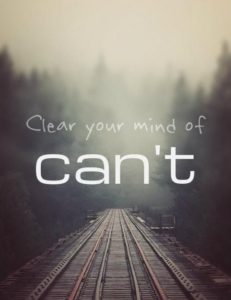Have you ever reflected about your perspective and approach on things in life? Do you tend to look at things logically or emotionally? Are you someone who sees the worst in others or the best?
Chances are you’re a blend. Most people are. I tend to start from a positive perspective on life, people and the situations I face. It’s interesting that being positive is unnerving to some. I’ve had people wonder if my approach is genuine or something that just comes on when I’m surrounded by others. Sorry, that’s just not the case.
It’s appropriate to write about this because I honestly can tell you that my approach was built over years by watching . . . my mother. My mom is the case study for positivity. She sees the best in others the moment she meets them. There’s no cautionary period or gauntlet that she requires people to struggle through before they earn her favor. The other amazing aspect of my Mom’s approach is that she isn’t over the top. It comes natural to her and people are drawn to her. She also is comfortable with people regardless of their background, status or heritage. She’s sees others in one way – as humans. So, growing up with this role model set the stage for who I am and how I view others as well.
My Mom also taught me to look at what you “can” do versus what you “can’t.” I never realized how critical this was going to be throughout my career. You see, the majority of people tell you what they can’t do when they are presented a situation. It’s our first instinct to look at obstacles. I don’t know why that is what we do, but we do. Once this stance is established, the dialogue continues to drum up more and more obstacles. The “cant’s” just pile up on top of each other. Then, when we hit a certain level, we feel that we can finally take things on to fix them.
It amazes me that the majority of people who go to work feel that their only true worth is when they are fixing problems. I don’t understand that. Do we go to work to perform or to repair? If everything is messed up, how does anything ever get accomplished? It’s seems to be a defeatist approach to work.
 The folks who tend to say “can’t” the most are the people in HR. I say this with assurance because of how I was taught to practice human resources, and how I hear many of my peers discuss what we do. This has to stop along with one other thing. I know that many people state that HR says “No” too much. I disagree. You see, we’re supposed to say “No” because one of the primary values we add to organizations is to reduce liability. Saying no doesn’t curtail things moving forward. It allows people to move in a direction which has fewer chances to fail !!
The folks who tend to say “can’t” the most are the people in HR. I say this with assurance because of how I was taught to practice human resources, and how I hear many of my peers discuss what we do. This has to stop along with one other thing. I know that many people state that HR says “No” too much. I disagree. You see, we’re supposed to say “No” because one of the primary values we add to organizations is to reduce liability. Saying no doesn’t curtail things moving forward. It allows people to move in a direction which has fewer chances to fail !!
We have the ability to be encouragers in our roles and throughout our organizations. We need to be the ones who show others how they CAN perform. We need to be the ones who believe that people CAN work from their strengths. We have to be the ones who are positive first. Every time and in every situation.
You CAN do it !! I believe in you !!
